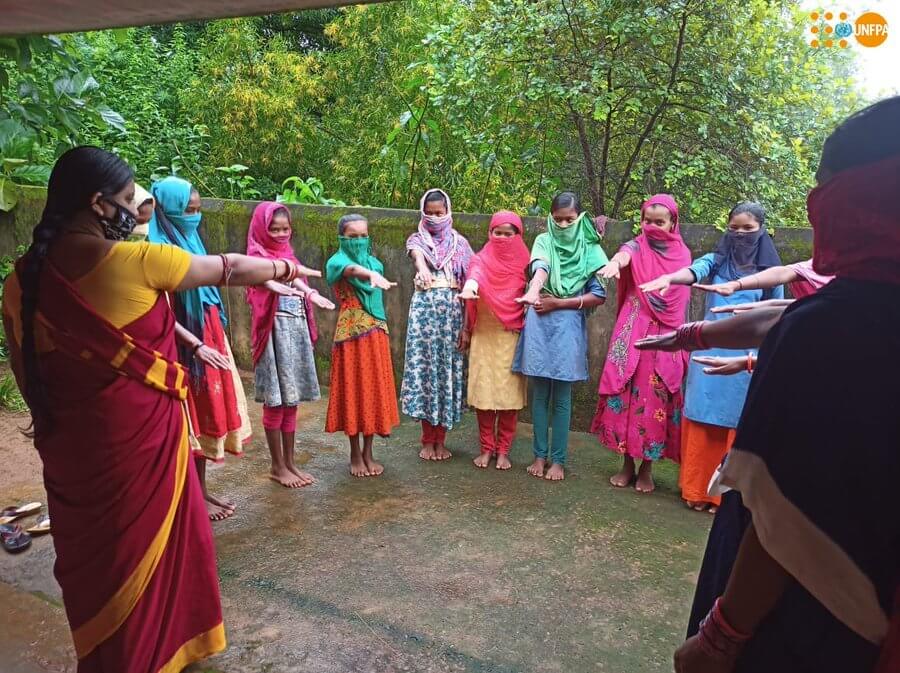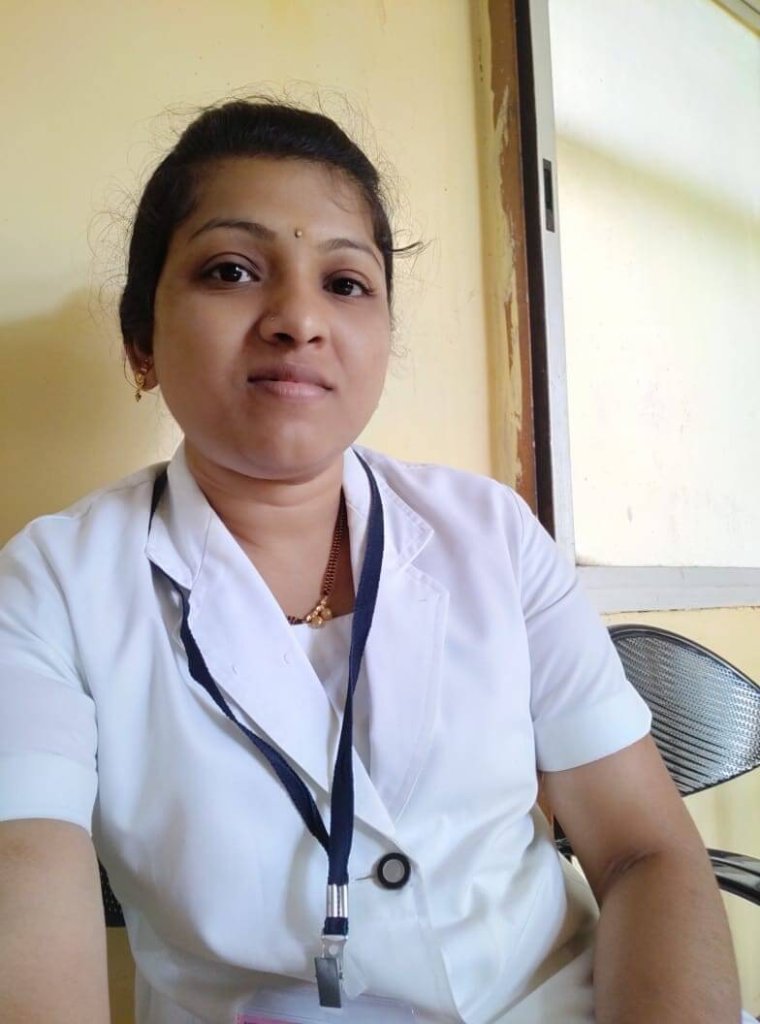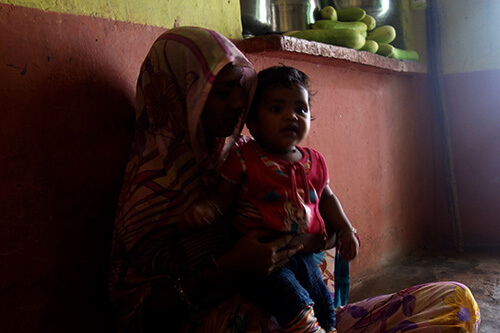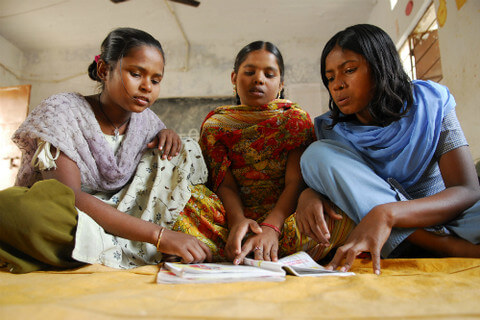UNFPA supports midwives, women, and girls during India’s COVID spike

India has seen a huge spike in coronavirus cases in recent weeks. The situation has severely impacted the country’s public health system. UNFPA is working to provide lifesaving care in India during this COVID-19 spike.
Throughout February, the country was seeing around 10,000 cases a day. By the beginning of April, the number had jumped to 50,000 cases. And now, in May, India is reporting over 250,000 new cases of coronavirus every day. These numbers are shockingly high, but experts think that cases –and deaths– are being undercounted. NPR reports that even in one well-equipped hospital, 12 people died after an oxygen delivery arrived 90 minutes late.
Parts of the country have already gone into lockdown, including India’s capital, Delhi. But calls for a national lockdown are growing after India passed 20 million cases on May 4. Last year, India made the bold decision to completely lock down the country beginning in March 2020. However, the decision had severe consequences for women and girls.
Losing Access to Family Planning

Sugandha is one UNFPA midwife who began working with COVID-19 patients to manage the pandemic in India. She, like other frontline health care workers, made incredible personal sacrifices, like going 3 weeks without seeing her 3-year-old daughter. But Sugandha’s pivot to caring for COVID-19 patients meant she wasn’t providing sexual and reproductive health care, like family planning. The Foundation for Reproductive Health Services India predicted that up to 26 million couples lost access to family planning last year due to the lockdown. Family planning is a human right and its access should be maintained, regardless of a pandemic, conflict, or disaster.
Risking Injury, Death, and Poverty

An estimated 2-3 million women experienced unintended pregnancy as a result of losing access to family planning. In India, this dramatically increased the number of women resorting to unsafe abortion, a leading cause of maternal death. Further, women that experience unintended pregnancy are more likely to experience poverty, reduced employment or educational opportunities, domestic violence, and mental health disorders. COVID-19 has already caused financial strain on many families and put millions of Indian women at risk for gender-based violence. Adding an unintended pregnancy into the situation only makes it harder for women and their families to remain safe and healthy throughout the pandemic.
Falling Out of Education and Employment

Women’s and girls’ futures have been most impacted by COVID-19. 40% of working women in India lost their jobs due to COVID-19, putting women and their families at greater risk for poverty. Further, India has the world’s greatest population of child brides at 23 million. Calls to child marriage protection centers have increased 17% in 2020 compared with 2019. Child marriage puts girls at risk of being pulled out of school and for early pregnancy and intimate partner violence. Indian girls are also at greater risk than boys for never returning to school after COVID-19. Part of the reason for this is that girls are less likely to be able to access to resources for school, like parental support or internet access. They are also more likely to spend time on housework responsibilities than boys the same age.
The consequences of the March 2020 lockdown in India were more extreme for women and girls than for men and boys. Another lockdown will prevent COVID-19 death and illness, but it will come at the cost of women and girls’ futures. That is India takes careful measures to ensure that women and girls can access lifesaving sexual and reproductive health care, no matter what.
UNFPA is working in India to provide support for health care workers, including personal protective equipment. The agency also works to support survivors of gender-based violence. Further, UNFPA works to provide all women and girls with continued access to sexual and reproductive health care. With your support, UNFPA can be there for India’s health care workers and vulnerable women and girls at this time.
-Dana Kirkegaard